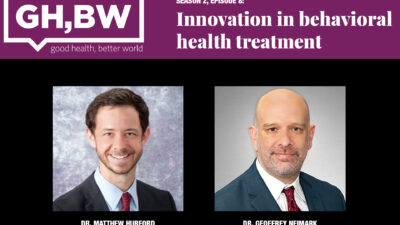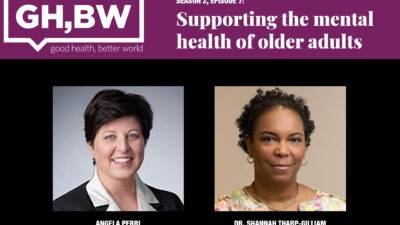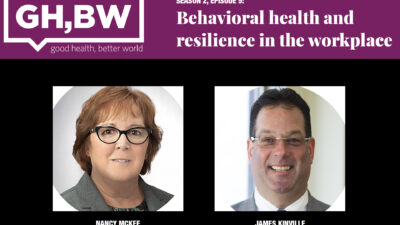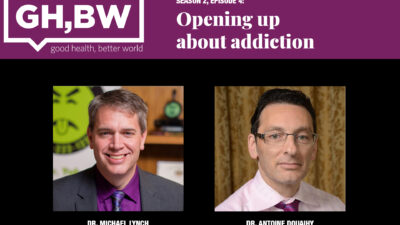Harnessing the power of information, researchers can begin to see the challenges people might face that influence decisions about their health — and give them tools to offer preventative care and life-changing services.
The UPMC Center for Social Impact focuses exclusively on social determinants of health, and works to create partnerships with organizations in the community to reach more people to link them with job training, steady employment, stable housing, and access to education.
In Episode 6 of Good Health, Better World, host Eileen Beckjord talks with Joan Eichner, Ph.D., director, operations and evaluation, UPMC Center for Social Impact.
Joan’s work supports development of comprehensive research and evaluation strategies in order to better understand how to address those social factors that influence an individual’s decisions about their health, and improving health outcomes associated with social determinants.
Read part of the conversation, here, then listen to the entire podcast.
Can you discuss integrating social service data with health data to help improve health outcomes?
Data integration provides an opportunity to help us to have a more complete picture of our members, and be able to provide the right type of care or preventive care, to that person at the time that they need it. Our goal is really to promote their best health and wellbeing and not be reactionary after they've had significant health events. We really want to be able to help them as their health plan, to be best positioned to live their healthiest life.
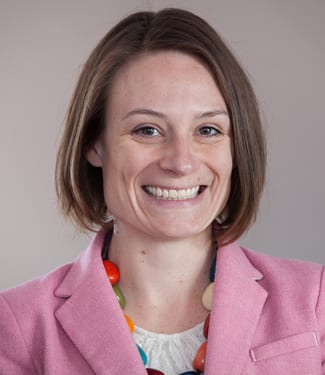
What is a payer’s role in addressing social needs?
I think we are starting to build our case and build our strategy for what our role as a payer is. I'm speaking specifically as the health plan side of UPMC. We know that we can potentially prevent (some) emergency department use. A concrete example of that would be looking at pediatric asthma.
If we have the ability to understand which children frequently use the emergency department due to chronic asthma, and if we can use data to understand which communities are at elevated risk for asthma, we can do outreach to those families and link them to programs or supports or funding in the community that can help do in-home assessments to help with asthma management education.
The theory being, then that we will see a reduction in emergency department use associated with asthma. Nationally, a lot of payers are starting to think of themselves more in the business of wellness. And so it's more of a shift towards prevention.
The Center for Social Impact is situated within the UPMC Center for High Value Healthcare, which is an entity within the Health Plan that is focused on research. How are you thinking about the role of research as the Health Plan works to address social determinants of health through the Center for Social Impact?
We always want to take the best research evidence available, as well as the best lived experience and we want to translate that into what we think will be the most successful action for the right group of people at the right time, that has some link to the outcomes that we are hoping to have an impact on. We are trying to be savvy consumers of research and savvy users of research, but it doesn't necessarily have to be that really high rigorous standard of research that you are so focused on in academia. We don't necessarily need a rigorous study to know that giving somebody access to nutritious food is likely to have a health benefit. But I think there is enough evidence that some social interventions are very strongly linked to certain key outcomes. So helping folks enroll in public benefits like SNAP, for example, there's some solid research behind that the health benefits and the health utilization outcomes associated with those types of programs.
Listen to the rest of the conversation on the Good Health, Better World podcast.
Learn more about the UPMC Center for Social Impact, by clicking here, or by email at [email protected] to inquire about other partnership opportunities.
This conversation has been edited for clarity and brevity.


